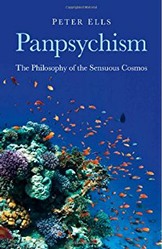




 NEXT
NEXT
 BACK
BACK

Philosophical musings on Quanta & Qualia; Materialism & Spiritualism; Science & Religion; Pragmatism & Idealism, etc.



 Recent Posts
Recent Posts
Post 4. Continued . . .
Alternative Theory of Reality & Deity
Panqualia vs Embodied Information
Another article in the Philosophy Now magazine attempts to find “a balance between two extreme views of consciousness. . . . Physicalism and panpsychism sit either end of a metaphysical seesaw, and when one is in the ascendancy it is only by bringing the other unduly low.” The author, Dr. Sam Coleman, proposes a different kind of stuff (essence) that is “neither mental nor physical in itself, but which possesses properties capable of generating both the mental and the physical.” The “one fundamental stuff” he's referring to is Consciousness, but for technical purposes I think that the scientific term “Information” fits the description better. As Claude Shannon discovered in mid-
Post 4 Continued . . . . Click Next
5. https://en.wikipedia.org/wiki/Physical_information

Panpsychism : In philosophy, panpsychism is the view that consciousness, mind or soul (psyche) is a universal and primordial feature of all things. Panpsychists see themselves as minds in a world of mind.
Panpsychism is one of the oldest philosophical theories, and has been ascribed to philosophers like Thales, Parmenides, Plato, Averroes, Spinoza, Leibniz and William James. Panpsychism can also be seen in ancient philosophies such as Stoicism, Taoism, Vedanta and Mahayana Buddhism. During the 19th century, panpsychism was the default theory in philosophy of mind, but it saw a decline during the middle years of the 20th century with the rise of logical positivism.[1][2] The recent interest in the hard problem of consciousness has revived interest in panpsychism.
https://en.wikipedia.org/wiki/Panpsychism